Business Law Assignment: Comprehensive Analysis of Business Law Cases
VerifiedAdded on 2023/02/01
|6
|779
|28
Homework Assignment
AI Summary
This business law assignment analyzes two key areas: offers and partnerships. The first part examines whether ten customers without an advertisement copy can claim an offer, discussing reward cases and offer revocation rules. The second part explores the implications of a partner's death on a business partnership, referencing the Australian Partnership Act of 1963 regarding dissolution and property distribution. Additionally, the assignment addresses determining partnership properties and dividing losses, outlining rules for initial contributions and business partnership considerations. The conclusion highlights the role of the partnership act in mitigating individual losses and profits. The assignment incorporates relevant legal principles and case studies to provide a comprehensive understanding of business law concepts.
1 out of 6
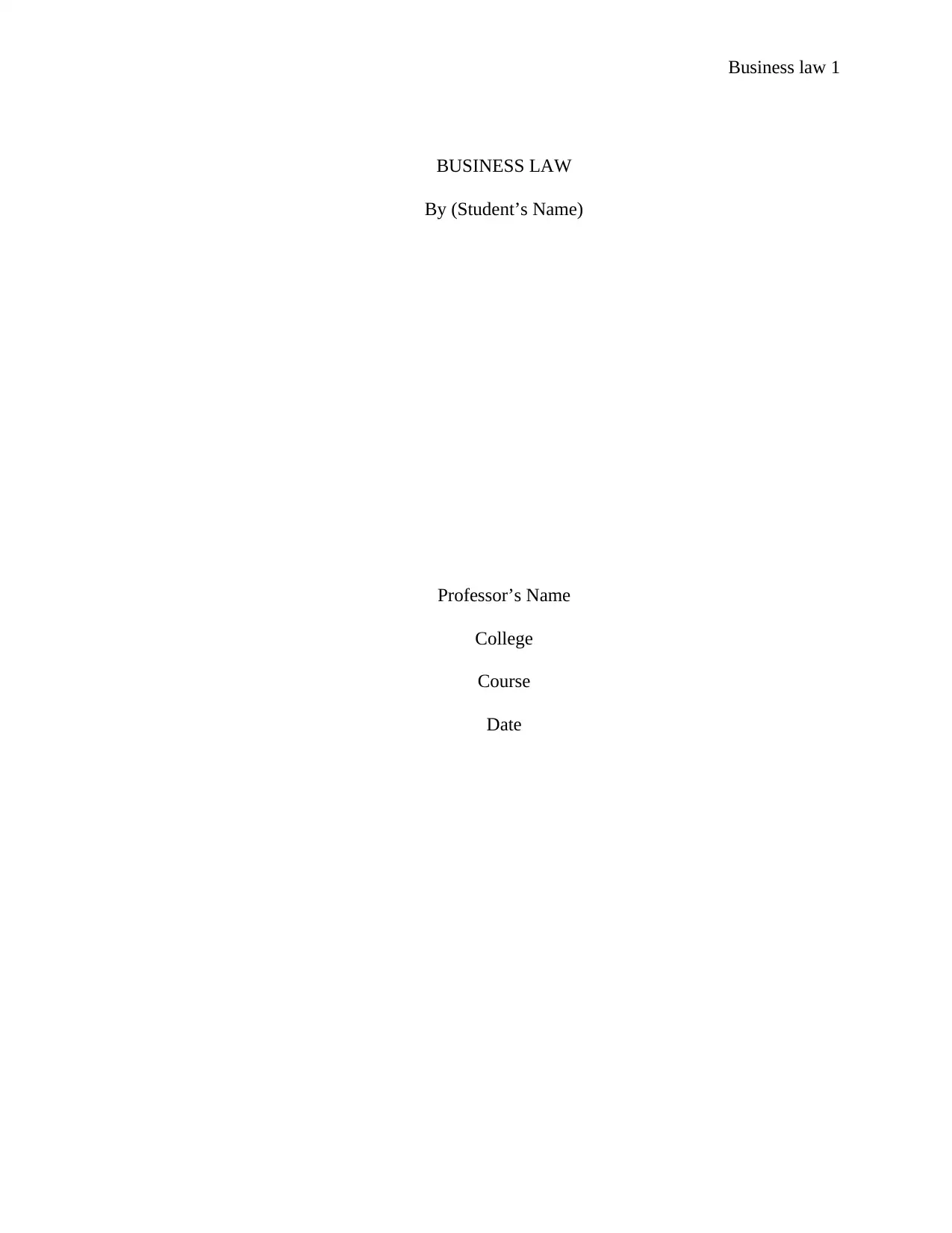
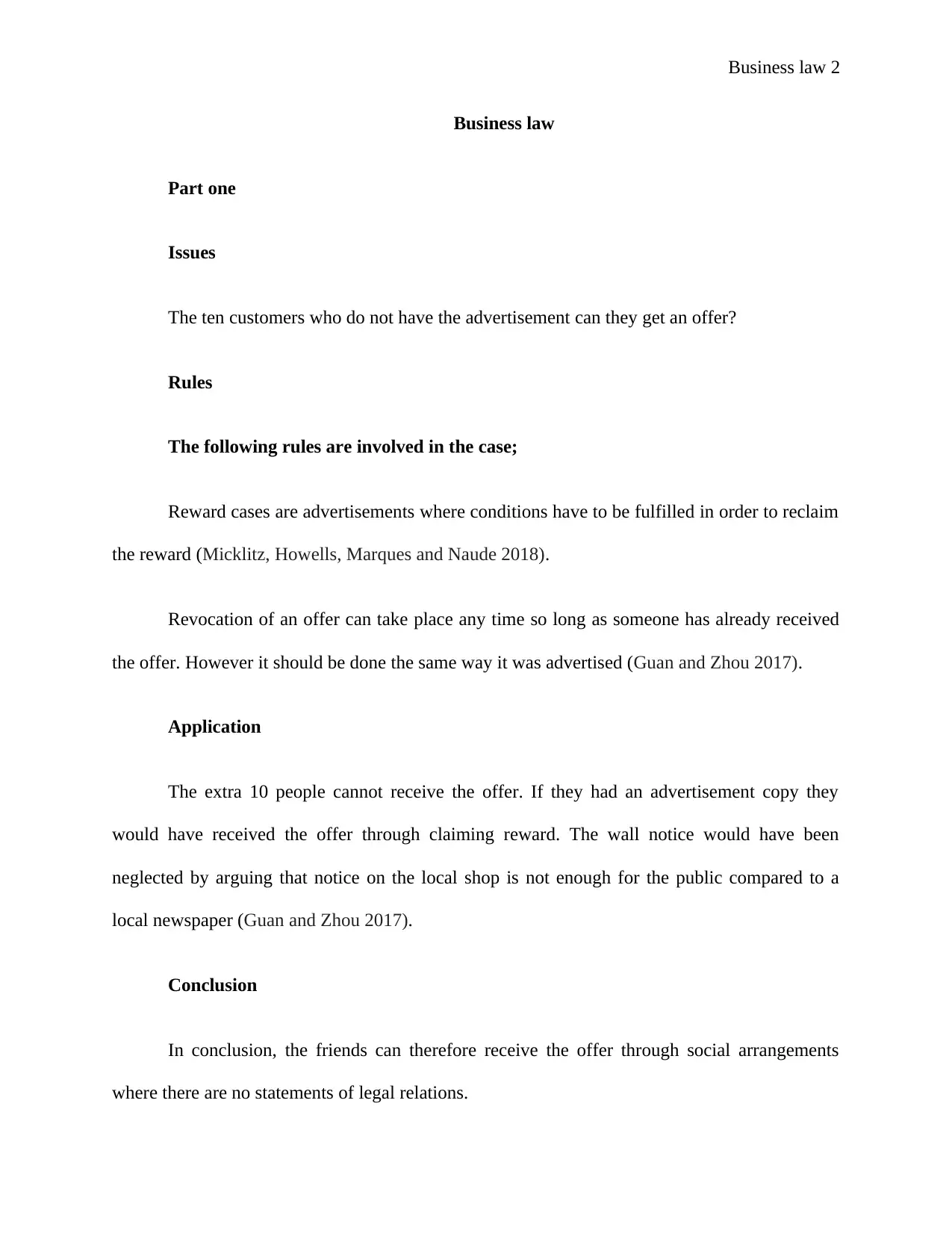
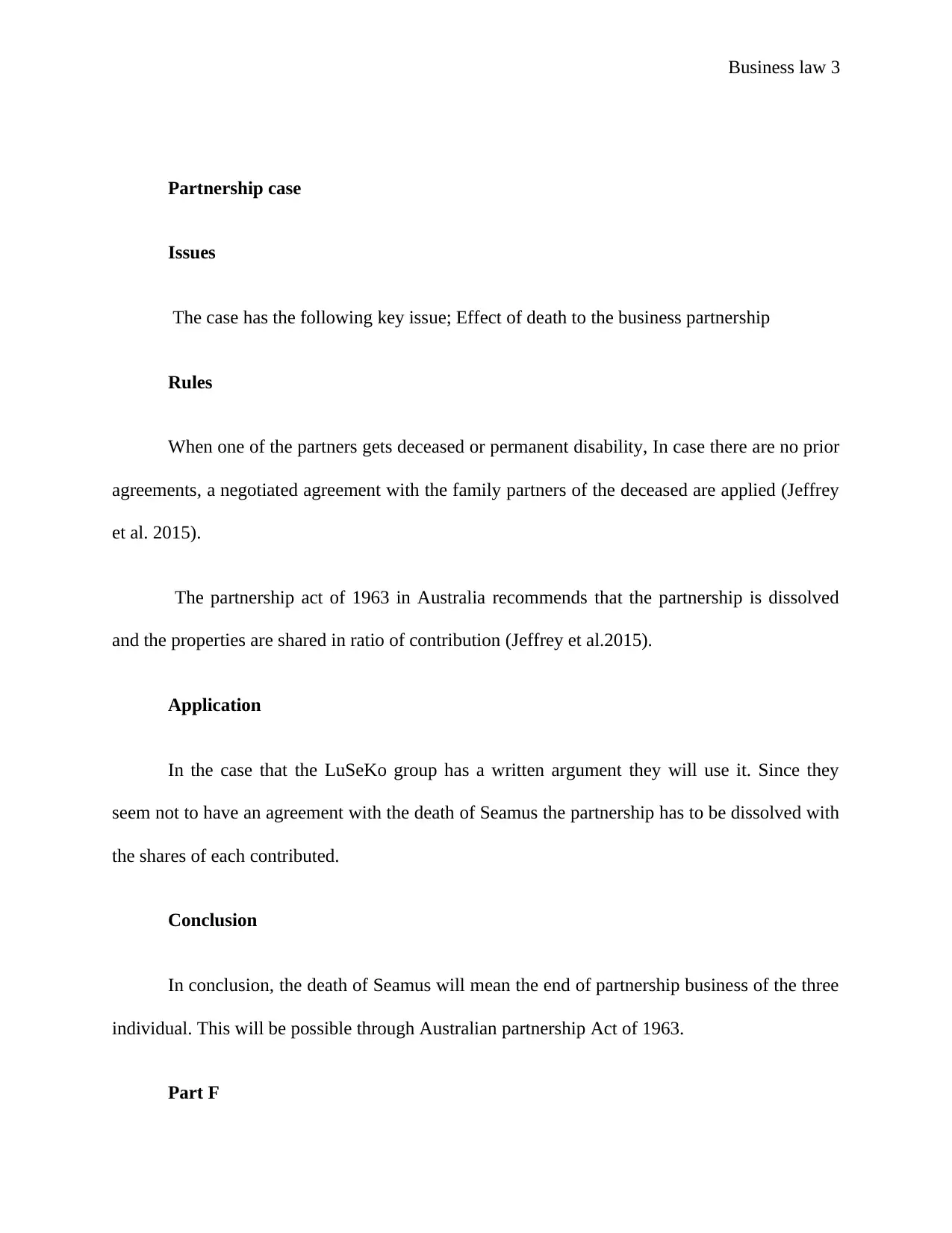

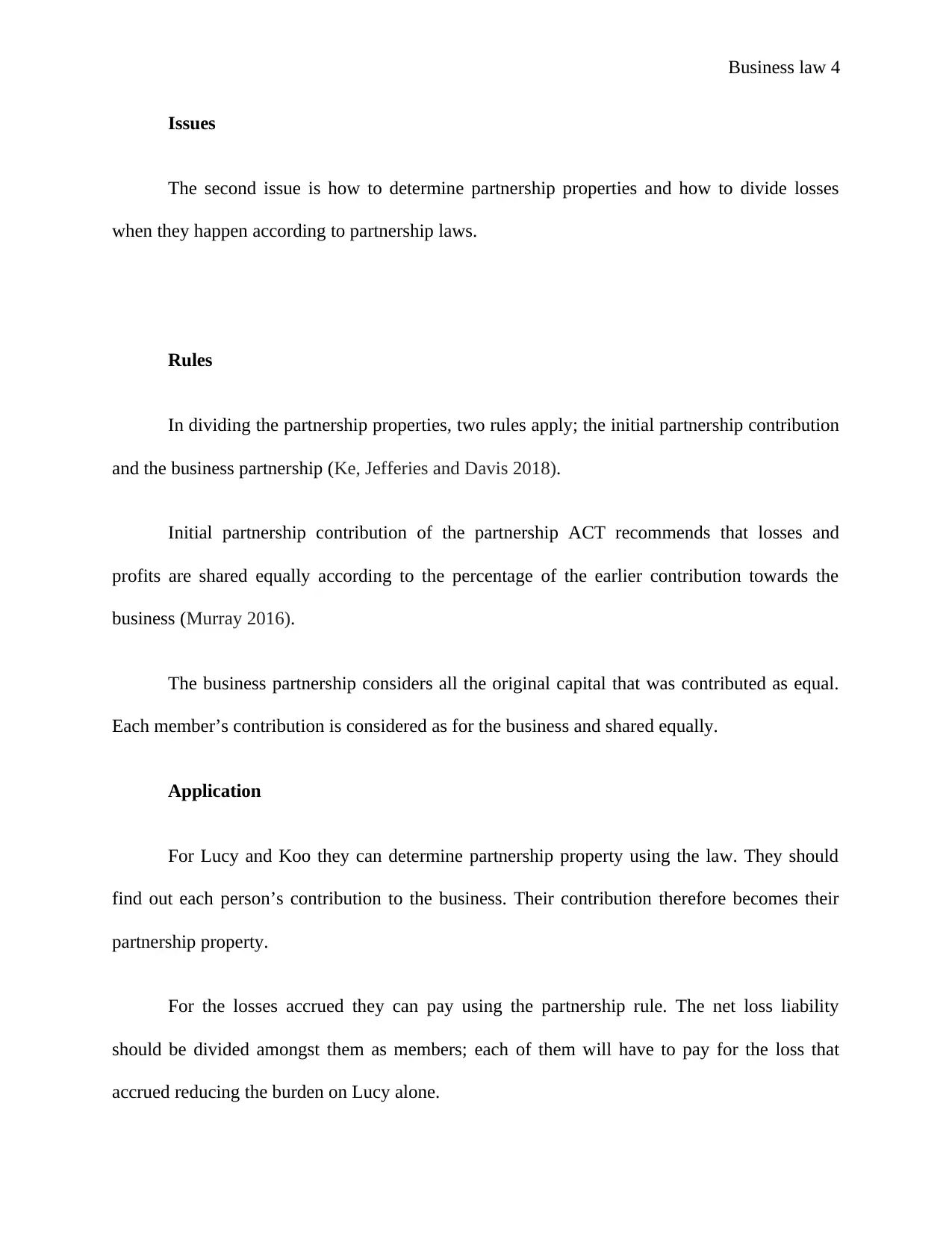

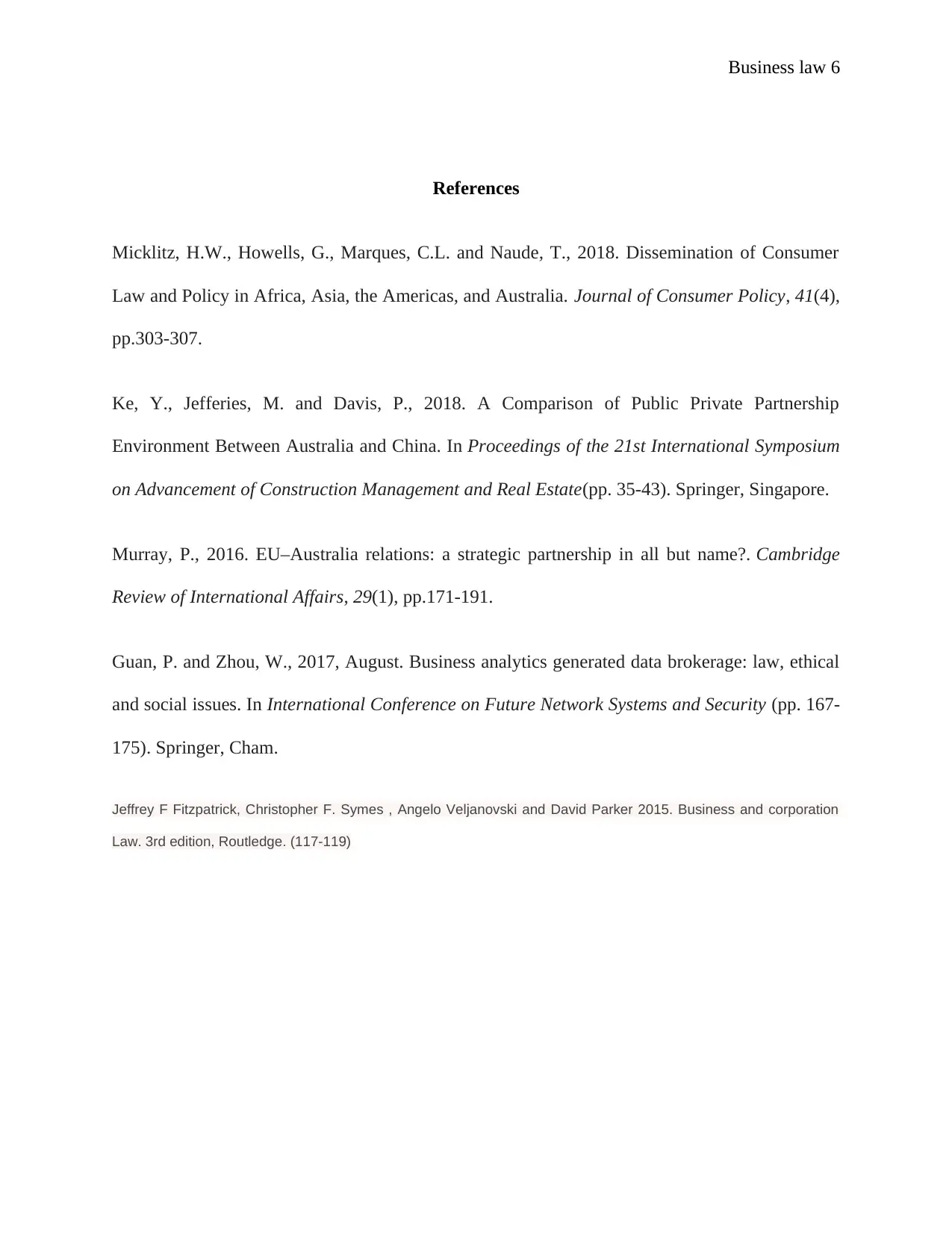





![[object Object]](/_next/static/media/star-bottom.7253800d.svg)